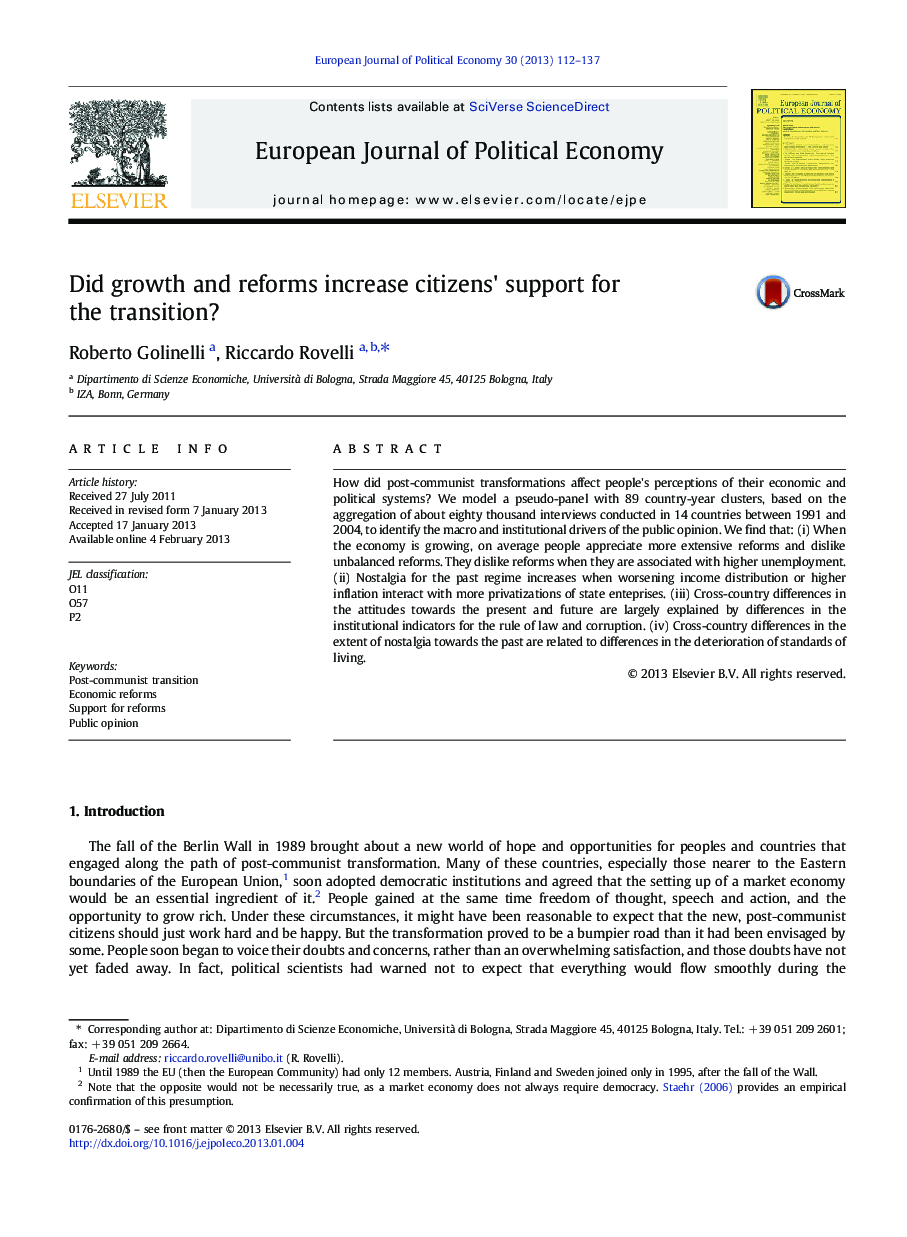| Article ID | Journal | Published Year | Pages | File Type |
|---|---|---|---|---|
| 5068125 | European Journal of Political Economy | 2013 | 26 Pages |
How did post-communist transformations affect people's perceptions of their economic and political systems? We model a pseudo-panel with 89 country-year clusters, based on the aggregation of about eighty thousand interviews conducted in 14 countries between 1991 and 2004, to identify the macro and institutional drivers of the public opinion. We find that: (i) When the economy is growing, on average people appreciate more extensive reforms and dislike unbalanced reforms. They dislike reforms when they are associated with higher unemployment. (ii) Nostalgia for the past regime increases when worsening income distribution or higher inflation interact with more privatizations of state enteprises. (iii) Cross-country differences in the attitudes towards the present and future are largely explained by differences in the institutional indicators for the rule of law and corruption. (iv) Cross-country differences in the extent of nostalgia towards the past are related to differences in the deterioration of standards of living.
⺠Which macro and institutional factors drive public opinion during the transition? ⺠People appreciate more extensive reforms, but dislike unbalanced reforms. ⺠Nostalgia for socialism increases as income distribution worsens or inflation rises. ⺠Change in living standards explain different country evaluations of the past. ⺠Rule of law, control of corruption explain current differences between countries.
